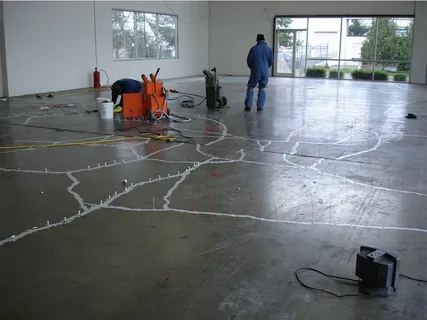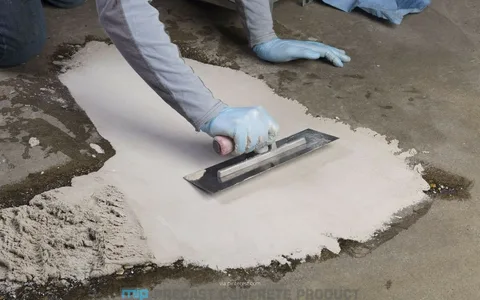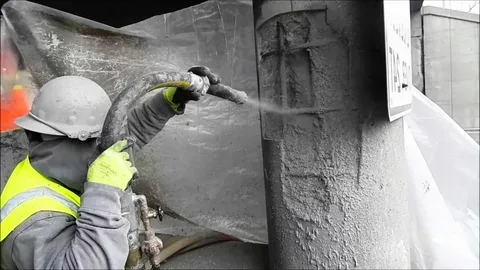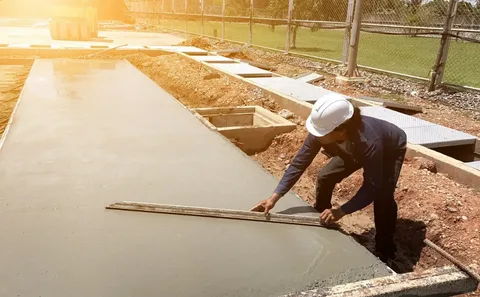
Things You Should Know About How to Approach a Professional Concrete Repair Expert for Your Property
Concrete forms the backbone of many of your residential and commercial property’s structures, so it is an important product that plays a huge role in the structural integrity and also gives the aspect or vision of your property. Since this is a very durable material, the environmental influences and other factors result in visible damage after some time. Whether cracking, spalling, or settling, damaged concrete pulls down the value of your property or can lead to larger problems if left unchecked. In this case, you need concrete repair experts who know how to restore the strength and appearance of your concrete.

Why You Need Professional Concrete Repair
Concrete, though looks indestructible, is never completely immune to damage. Withstanding changes in the weather, heavy loads, slipping of the soil, or improper installation can cause it to crack, its surface to degrade, and even sink over time. At such instances, many homeowners do attempt DIY remedies. However, DIY solutions always lack the technical know-how and proper materials needed for a much more permanent solution.
Here are some reasons why you need to hire professional concrete repair specialists to maintain your property:
1. Expertise and Knowledge
Training on the root cause of damage to the underlying structure is the other proficiency a professional concrete repair has received. Whether a cracked driveway, foundation settlement, or wear in the patio surface, they have technical knowhow about concrete behavior and how best to deal with all the problems. This understanding aids them to identify and take care of problems even before they grow too big.
2. Access to Advanced Tools and Materials
Concrete repair professionals in the concrete repair company use specialized tools and high-quality materials in the repair process. Most of the concrete repair processes will require heavy industrial equipment, such as a drill, epoxy injector, or slab lifting equipment, which most people do not have in their homes.
3. Cost-Effective in the Long Run
While it may be more expensive at first, professionals end up being cost-effective in the long run. Bad DIY attempts usually result in repetitions of damage that may turn out to be more expensive later on. A residential concrete repair specialist will get the job done right the first time, avoiding damage from happening again and saving money in the long run.
4. Safety
Concrete repair also involves hazardous conditions in the course: you may have to handle machinery, use chemical adhesives, or even fix big cracks. The concrete repair professionals are trained on safety protocols that ensure nothing goes wrong at the time of repair.
Identify Concrete Damage
To look for a concrete repair expert, it would be great to know when your concrete surfaces need attention. Concrete deteriorates for several reasons, and their early recognition can save you from the costly and extensive repair jobs. Here are common indicators that tell you it’s time to call a concrete repair company:
1. Visible Cracks
Cracks are the most visible damage on concrete surfaces. Although extremely hairline cracks are hardly visible, most of these cracks tend to worsen over time in case of penetration of water or freeze-thaw cycles. Serious cracks are extremely large and should be handled professionally. Cracks can occur on driveways, patios, walkways, or even on vertical retaining walls.
2. Scaling or Spalling
Spalling occurs wherever the cover of the concrete cracks or flakes and peels off. It occurs essentially from repeated cycles of freeze and thawing as well as exposure to harmful chemicals like de-icing salts. This spalling does not only affect the aesthetic look of the concrete but exposes all the surfaces underneath to much damage.
3. Sinking or Uneven Surfaces
Typically, a slab sinks due to soil erosion or compaction under the concrete slab. When the soil shifts, it also moves the concrete to sink, hence creating unevenness in the slab. This condition tends to occur mostly on driveways or walkways and is dangerous if not addressed. Professional concrete repair firms are typically equipped with the right tools and techniques, such as mudjacking or slab lifting, to handle such issues.
4. Color variation
Colors in your concrete can change, meaning a problem is lurking. Discoloration may point to penetration of moisture or chemical exposure; it is not always a structural issue and most often requires the touch of a repair company to restore its aesthetic appeal.
5. Water Pooling
If water collects on the surface of your concrete after it has rained or has been washed, then there could be a problem with poor drainage or a sunken slab. Standing water accelerates further degradation and needs to be addressed to avoid future damage.
How to Choose the Best Concrete Repair Expert
It is not easy, for example, to identify the right concrete repair contractor for your project. Nowadays, there are many companies offering repairs. Choosing the right concrete repair specialist is important so that your concrete repairs can be long lasting and effective. Follow these steps in choosing the best professional for the task:
1. Research and Referrals
The first step to finding a good concrete repair professional is doing adequate research. Start with recommendations from friends, family, or neighbors. Personal referrals are excellent indicators of the caliber of work a contractor might produce. Beyond referrals, look online for reviews and ratings on websites like Yelp, Angie’s List, and Google. Seek companies that focus on residential concrete repair with appropriate compliments and verified client testimonials.
2. Licenses and Certification
Check if the concrete repair companies operating in your region have licenses. Always look for a certified contractor who holds certification from a known and well-recognized industry body, for instance, American Concrete Institute (ACI). That way, you are sure that the contractor adheres to and adapts the standards set by the industry and the best practices.
3. Experience Review
Hire concrete repair professionals who have specific experience in working on projects just like yours. Ask them to provide you with examples of their past work and inform you how they approached these jobs. Whether you need foundation repair, crack filling, or resurfacing, a concrete repair professional with experience in the specific kind of repair you require will ensure that the job gets done right.
4. Request Comprehensive Quotes
Always obtain quotes from a number of concrete repair contractors so that you can select the best one. The quote should be detailed showing what materials, labour and charges are applied. Keep in mind that low price usually does not reflect good work, instead value for your money, and that their practice has industry standard.
5. Insurance Coverage
Ensure that any contractor you hire has the right kind of insurance, which must include liability coverage and worker’s compensation. This would protect you from potential lawsuits or financial losses should an accident happen during the project.
6. Ask About Warranties
Professional contractors usually give guarantees about their work. The guarantees, in this case, may range from one year to several years depending on the project. Choose a concrete repair company that would cover both labor and material warranties and, on top of that, inquire about the warranty terms and conditions of the particular company.

Concrete Repair Methods Conducted by Professionals
Once you have chosen a concrete repair professional, it will be helpful to know how they may use any of the following common repair methods. Concrete repair is not a one size fits all; it really depends on the kind of damage and location of the repair. Here are some of the most popular methods used by qualified concrete repair professionals:
1. Crack Injection
Cracks ranging from major to minor to moderate in width are treated through injection; usually, this process is referred to as crack injection. Filling and sealing of cracks can either be done through epoxy or polyurethane resins. This procedure helps restore the concrete structure and prevents water penetration that could further destroy it.
2. Resurfacing
Concrete is resurfaced very frequently when the surface of the concrete is damaged, such as spalling or discoloration. The damage does not have to be replaced entirely as it can make the concrete new again with a thin layer of cement-based overlay.
3. Mudjacking or Slabjacking
Mudjacking is a process to lift sunken or uneven slabs. Here, a contractor drills numerous holes on the concrete then forces a slurry mixture composed mainly of cement, sand, and water under the slab. This fills up the void and lifts the concrete to its original level. It is one of the most cost-effective and efficient ways to fix sunken driveways, walkways, and patios.
4. Concrete Patching
Best solution for localized damage is patching. Concrete patching removes the damaged area and fills it with a cement-based patching material. The patched area is then smoothed and leveled to resemble the surrounding concrete.
5. Reinforcement and Strengthening
In some cases, mainly in structural concrete repair, secondary reinforcement is essential. This would be rebar in combination with other materials to strengthen the concrete. This is, however, typically used in foundation repair or in reinforcing concrete slabs under heavy loads.
6. Sealing
It is generally recommended after concrete repairs have been made to seal the concrete in order to prevent damage down the road from occurring. Sealing helps keep moisture at bay, and this could lengthen the life of the repairs themselves. You should speak with your concrete repair specialist about which type of sealer will best suit your climate and the type of surface you’re dealing with.
Preparing Your Property for Concrete Repair
Once you have chosen a concrete repair specialist, here are a few things you can do to ensure that the process will not be incredibly bumpy. Proper preparation would allow the contractor to work efficiently and possibly prevent potential delays. Here’s what you need to prepare for the repair:
1. Clear the Area
All furniture, autos, and equipment must be moved out from the premises to be renovated before the contractor arrives. If it is an extensive renovation such as driveways, foundation works, or even a garage, then some items should be temporarily shifted so that they will not interfere or get damaged with the given project.
2. Discuss Project Timeline
Request from your contractor a detailed timeline of the project. This will enable you, in case you have to schedule around the repair, to know what’s going to happen when. Concrete repair can also be weather dependent or sometimes delayed awaiting curing times so make sure you are flexible with that timeline.
3. Prepare for Noise and Disruption
Concrete repairs can be noisy and disturbing especially where heavy machinery may be required. Should you be planning a major repair, warn your neighbors so they do not complain and prepare your household or business for the temporary inconvenience.
4. Ensure Access to Water and Electricity
Access to water, in fact, to electricity, may be necessary for many concrete repair techniques. Make sure the contractor understands where these utilities are located and that they have easy access to them.
Maintenance of Repaired Concrete
Once you have finished cement repair, you will want to maintain the newly repaired surface. The quality maintenance of the repaired concrete extends the life of the repair and avoids complications which could arise later on. Some guidelines for maintaining the outlook of your concrete surfaces are as follows.
1. Regular Cleaning
Concrete may be eroded also due to dirt, debris, and stains. To prevent dirt and debris from accumulating, make it a habit to sweep and clean your concrete surfaces regularly. For driveways and walkways, you can consider having this power washed at least once yearly to remove stubborn stains and debris.
Apply Sealers
As discussed above, sealing your concrete can help safeguard it from water damage, stains, and ultraviolet degradation. Your concrete repair contractor will be able to guide you about how deep the sealer needs to be reapplied depending on the climate and type of your concrete.
3. Avoid Heavy Loads
Do not overload the repaired concrete. For instance, heavily loaded automobiles parking in a newly repaired driveway can cause cracking or sinking of the repaired driveway. Heavy equipment or materials should not be left on concrete patios or walkways.

Conclusion
Seeking the services of a professional concrete repair professional is one very important aspect for you to maintain the structural integrity and aesthetic appeal of your concrete surfaces. In other words, every step from choosing the appropriate contractor to knowing how to repair the concrete and maintaining the repaired one results in lasting output.
You are investing in the long term, as well as the value of your property, with the hiring of a professional concrete repair service. Ensure that you always hire on the basis of expertise, experience, and a deep and thorough understanding of your specific needs when it comes to a repair. With the right professional on your side, you can have your concrete surfaces back to their original state and be assured that they will remain in great shape for years to come.
